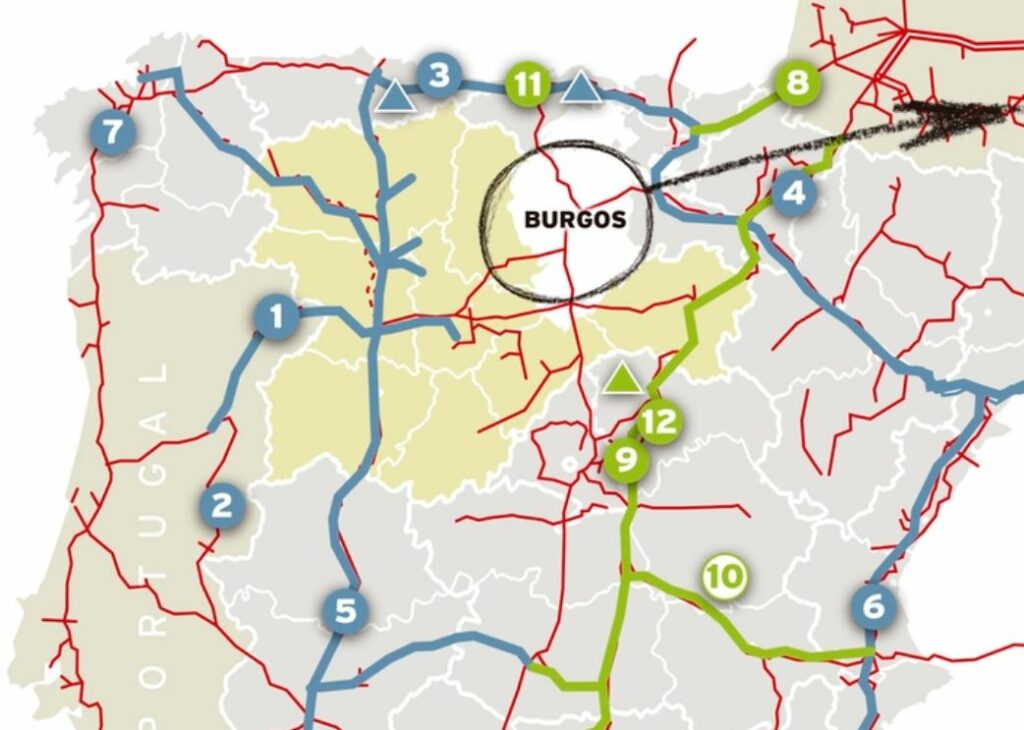Burgos, a city with a vision for spearheading the green hydrogen revolution, is rallying against the current trajectory of the Spanish H2 Trunk Network.
In a collective voice, city councils, employers’ associations, companies, and residents are challenging the proposed exclusion of Burgos from the national hydrogen pipeline network, a move seen as jeopardizing its competitive edge in Europe’s race for decarbonization.
The Spanish H2 Backbone Network, slated for definition in 2025, is under scrutiny as Burgos aims to secure its position at the forefront of green hydrogen development. The city is pushing for an inclusive approach, urging modifications to the existing project draft by Enagás. The current draft sidelines not only Burgos but also provinces like Palencia, Segovia, Soria, and Ávila.
This demand gains prominence as Europe accelerates efforts to reduce reliance on Russian fossil fuels. Burgos contends that being omitted from the hydrogen infrastructure plan could impede its vital role in the broader mission of decarbonizing the European economy.
The urgency of Burgos’s plea is evident in the extensive participation of various stakeholders, including city councils, employers’ associations, industrial entities, and local consumers, in the Call of Interest process initiated by Enagás. This process, mirrored in other European countries, aims to gather real insights into the future needs of the hydrogen market, including essential elements like ammonia, oxygen, water, and CO2, crucial for methanol generation.
Enagás, responsible for the development of the hydrogen infrastructure, will evaluate the collected data to organize infrastructures efficiently, ensuring a competitive cost structure. The results are anticipated to be unveiled to the public by the end of January 2024, shaping the future landscape of Burgos in the green hydrogen domain.





